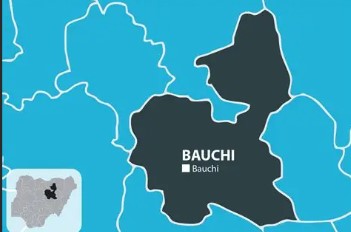By Odunewu Segun
Nigeria, aided by China is aggressively pursuing oil exploration activities in the Northeastern region with the optimism that oil discovery in the region could provide a buffer against unrest in the Niger Delta region.
Today, Nigeria’s government is focusing its exploration work in Bauchi and Gombe, states a safer distance from Boko Haram hotspots in and around Lake Chad.
National Daily gathered that work is centred on a triangle of hotly contested land stretching from Gubio in the west to Marte in the east and Kukawa, in the far northeast corner near Lake Chad.
According to the Nigerian National Petroleum Corporation, the discovery of oil in the Northeast region is a priority not just for the NNPC but for the country.
“We had to suspend operations on November 24, 2014,” said Mazadu Bako, General Manager of NNPC’s Frontier Exploration Services.
But he said the NNPC has received security clearance to move back in and a team had recently visited army commanders in Monguno — between Kukawa and Marte — “to discuss our strategy for the re-entry to the Chad basin”.
NNPC is working with the Bureau for Geophysical Corporation, a subsidiary of the China National Petroleum Corporation (CNPC) that specialises in seismic data exploration.
“There’s a heap of basins in that northern area, which, to be fair, are clearly under-explored,” said Gail Anderson, lead Nigeria analyst at Wood Mackenzie.
ALSO SEE: Why oil majors not relocating their headquarters to Niger Delta?
“There’s definite potential and with insecurity in the Niger delta, there’s a lot of sense in that.
However, industry insiders warn that oil discovery in the region may not be a win-win situation for the country because it then gives Boko Haram more motivation to attack.
“We’ll also start to see communities in the region looking to exercise more land control. That’s what we’re seeing in the Niger delta,” said Ecobank energy analyst Dolapo Oni.
According to findings by National Daily, landowners in Alkaleri, Bauchi state, have demanded for government compensation over claims that exploration work was damaging farmland.
Nigeria, Africa’s largest oil producer, has been one of the countries worst affected by the plunge in global crude prices since mid-2014. Last year, its economy shrank 1.5 percent — its first full-year contraction in 25 years — while inflation soared and the naira currency weakened.

 Health5 days ago
Health5 days ago
 Entertainment6 days ago
Entertainment6 days ago
 Crime5 days ago
Crime5 days ago
 Education7 days ago
Education7 days ago
 Health7 days ago
Health7 days ago
 Comments and Issues6 days ago
Comments and Issues6 days ago
 Football6 days ago
Football6 days ago
 Latest6 days ago
Latest6 days ago











